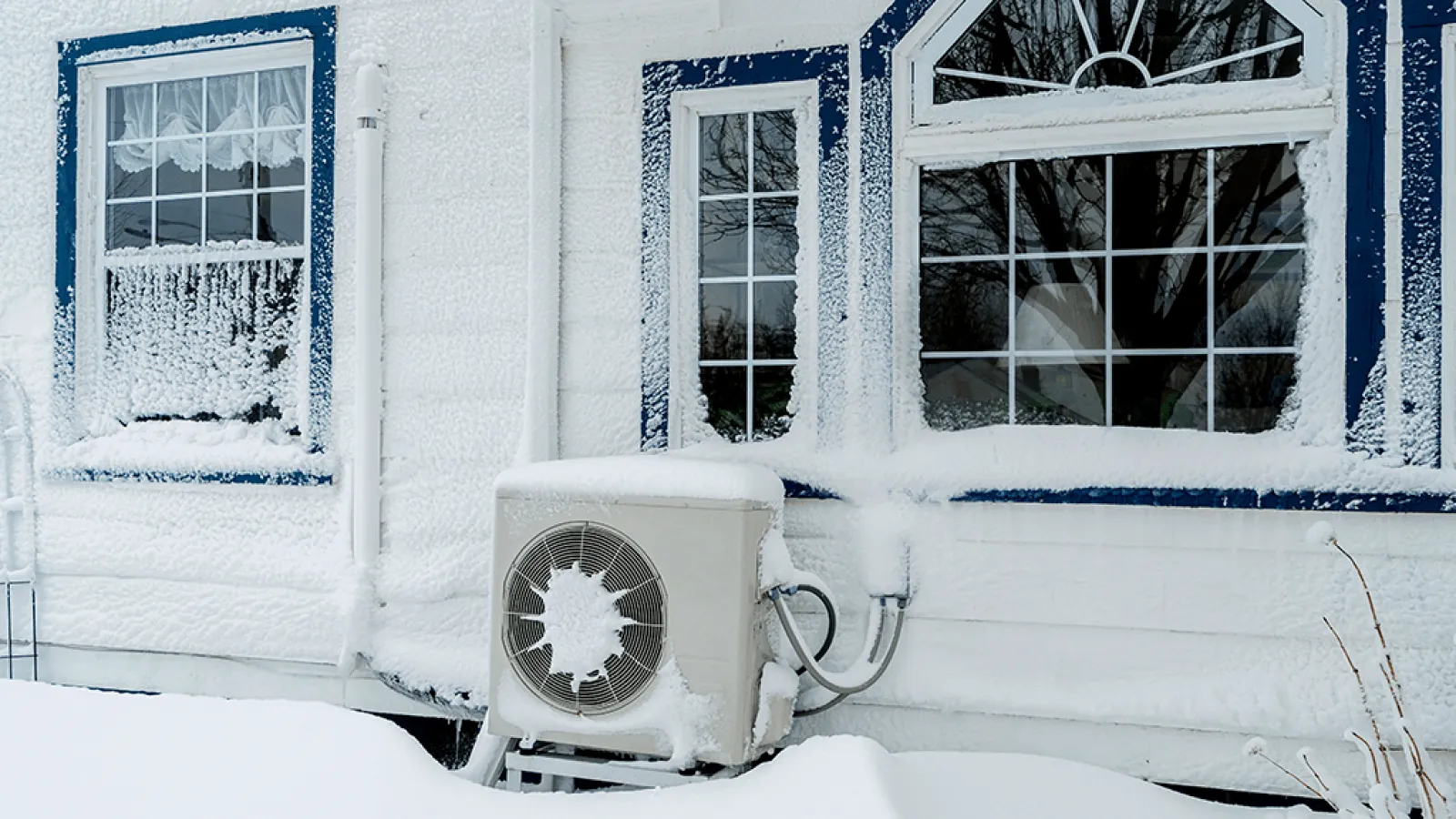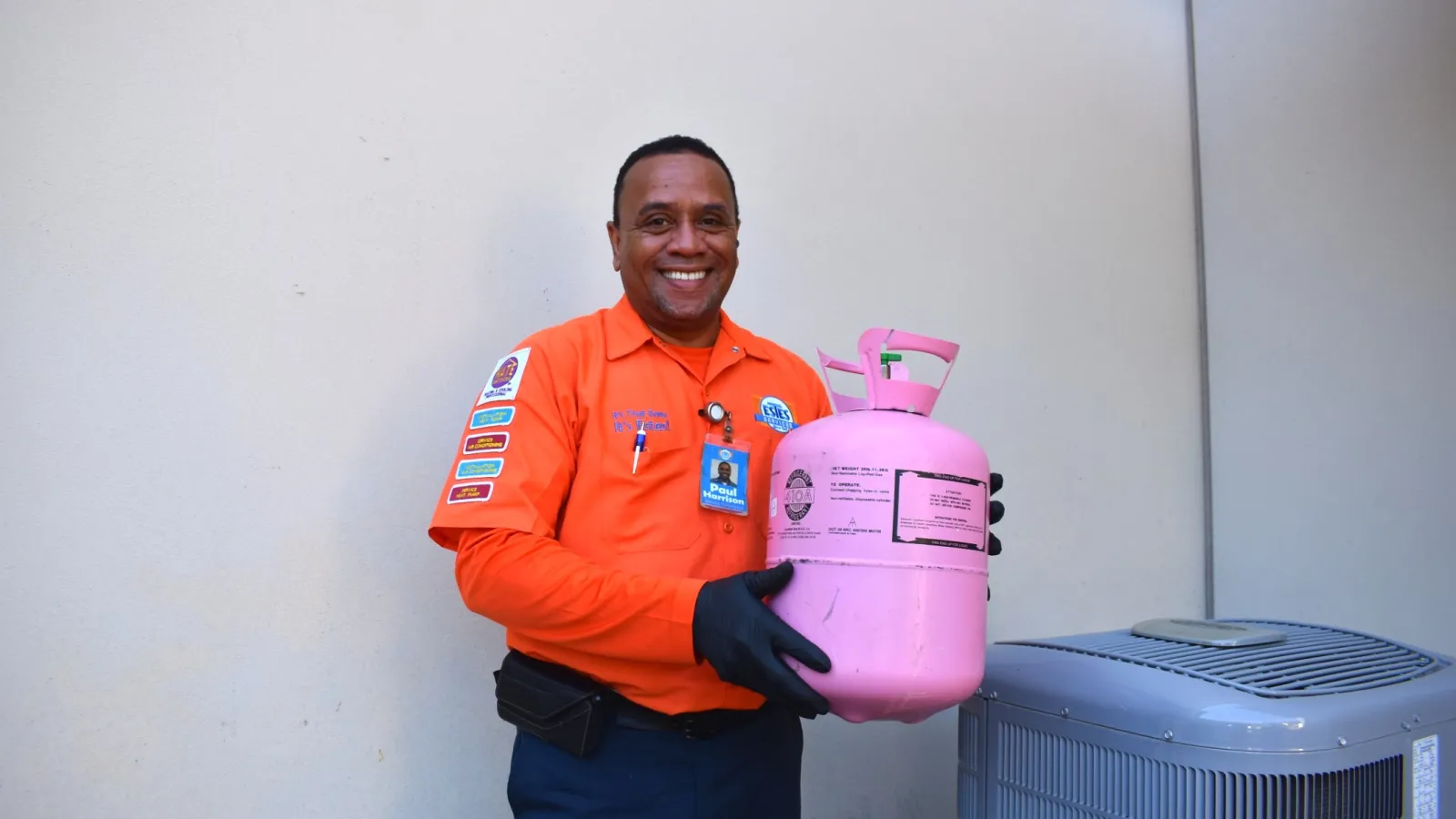Heat pumps are used for heating and cooling in homes throughout the Atlanta area. In our Southern climate, these HVAC systems typically offer energy-efficient comfort throughout the year. However, when temperatures drop too low, you may notice your heat pump struggles. In our most recent blog, Estes Services explains at what temperature do heat pumps become ineffective. For more information on heat pumps, contact us today.
Heating with a Heat Pump
An air source heat pump heats your home by pulling heat from the air outside and transferring that heat into the air circulating throughout your home. Even though it may feel crisp outdoors, there is often ample heat to be found to provide sufficient heating inside your home.
Atlanta winters are mostly mild, which allows heat pumps to operate efficiently in most cases. However, there comes a point when outdoor temperatures drop too low for optimal operation. Heat pumps do not operate as efficiently when temperatures drop to between 25 and 40 degrees Fahrenheit for most systems.
A heat pump works best when the temperature is above 40. Once outdoor temperatures drop to 40 degrees, heat pumps start losing efficiency, and they consume more energy to do their jobs. When temperatures fall to 25 to 30 degrees, a heat pump loses its spot as the most efficient heating option for an Atlanta home.
Even at 25 degrees, your heat pump will still run. The issue at this temperature is that they system will require more energy as it runs because there isn’t enough heat energy in the outdoor air for the heat pump to use in heating your interiors.
How to Heat When Temperatures Are Low
When heat pumps quit working efficiently, many Atlanta homeowners turn to their backup heating systems for warmth. A backup heating system is another type of heating system that is installed to be used during periods where heat pumps do not offer optimal energy efficiency.
Investing in a backup heating system is a smart idea for Atlanta homeowners who don’t want to risk high electricity bills due to heat pumps that struggle amidst the cold. There are a few different system options available, including:
- Electric resistance heating can be added to your home through the installation of heat strips within your HVAC system. The heat strips take over heating once heat pumps stop performing efficiently in cold weather. They aren’t the most energy-efficient option, but they are more efficient than heat pumps at low temperatures. If you don’t have access to natural gas energy at your home, this may be the right backup heating option for you.
- Gas furnaces offer efficient heating during cold periods where heat pumps struggle. If your home has natural gas connections, a gas furnace is likely your most efficient backup heating choice. Gas furnaces do cost more to purchase and install compared to heat strips, but the heating they provide is more efficient and reliable.
Use Backup Heating Wisely
Backup heating systems are an excellent solution when Atlanta temperatures dip toward freezing and heat pumps become less efficient. The key is, they should only be used when temperatures are below 25 to 30 degrees. Running the backup heating system once temperatures are warmer will increase your heating costs.
Your HVAC system should be configured to automatically turn on the backup heating system when it reaches a certain temperature. It should also switch the backup heating system off once temperatures climb above that range, allowing the heat pump to run once more. It is possible to manually switch between systems, but you run the risk of leaving the backup heat on longer than necessary and driving up your heating bills.
Reliable Heating, No Matter What!
Estes Services wants to help you avoid poor heating when outdoor conditions reach temperatures that are cold enough to decrease heat pump efficiency. Contact us to learn more about installation of backup heating options to provide your household with reliable heating, no matter how cold it is outside!


